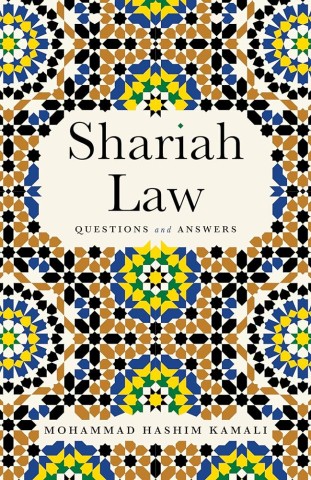Shariah Law Questions and Answers
In 2017, Mohammad Hashim Kamali, published a collection of crafted questions about Shariah, divided into 17 sections and 190 questions. I have posted on a number of Kamali's books, largely with reference to their use in teaching ethics and integrating more diverse thought traditions into the course. The audience of the book appears geared toward readers unfamiliar with Islamic law, and in that respect the book moves from basic introductions to specific issues. The selected questions appear geared toward addressing commonly raised questions about Shariah, particularly by Western readers. Each chapter concludes with a listing of evidence and legal maxims. One example question from about midway through the book:
"Q97) Is Islamic law compatible with democracy? With political pluralism? What is Shura, and how does it relate to democracy? A) Yes it is for the most part. A democratic system of rule on the whole compatible with Islam Because democracy is about people's participation, a representative by the people and for the people, it is also about fundamental rights and liberties, the rule of law, limitations, on the coercive of the state through checks and balances and equality before the law. Broadly, Islamic law approves of most of these and takes affirmative positions on the protection and realisation of people's welfare and their rights. Islam advocates a consulted and also a limited government that does not impinge on people's rights and liberties, one that is committed to accountability and justice. Islam also envisages a service-oriented system of rule that carries no barriers between ruler and ruled, and shuns pomp and ceremony of the kind that came into vogue with the onset of monarchy and dynastic rule under the Umayyad and Abbasid dynasties. What is just said here is mainly meant to depict a general picture - let it be said, however, that Islamic history in almost every period and dynasty has also known many good and upright, indeed exemplary, rulers who inspired the confidence of their people and left an impressive legacy of dedication to public service" (p.106)

